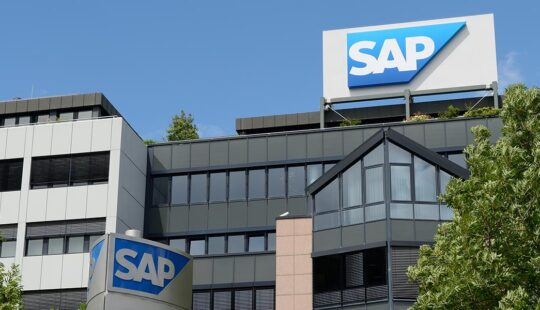For a long time, India has faced one recurring challenge: the “missing middle.” Smaller firms haven’t been able to grow into larger ones by leveraging the economies of scale and adoption of technology to become larger enterprises. Though micro, small, and medium enterprises (MSMEs) have the potential to become the growth accelerator for Startup India, we still have some distance to go before making it a reality.
Unlike digitally native start-ups, MSMEs have different practices and processes and generally show a lack of technology adoption. MSMEs aren’t as agile in their responses to disruption compared to their digital peers and lack the right ecosystem to address the challenges they face. But with Atmanirbhar Bharat, the central theme of India’s economic recovery, this mindset may just change.
Setting the Stage for High-growth Potential
MSMEs are beginning to realize the criticality of digital transformation when surviving and adapting to changing market conditions. According to IDC,* midsize companies are strengthening their competitive position with rapid digitalization and business formalization. More than a quarter are moving forward with plans to deploy business applications with artificial intelligence to surface insights, accelerate decision-making, and operate with greater resiliency and agility.
For MSMEs, technology adoption enables greater agility and faster decision-making. While developing the right ecosystem of IT providers and service partners, they can bridge the information gap to improve the transparency of their supply chains and financial performance and seize opportunities once reserved for startups. Meanwhile, larger corporations can onboard Indian MSMEs more confidently by fully understanding their value, operational performance, and compliance standards.
The good news is that this momentum toward revenue growth and global expansion is within reach for every MSME. However, there is one caveat: their operations must keep up and adapt to a marketplace that evolves every day.
Growth begins with Fast-paced Operational Change
The principal challenge of Indian MSMEs is boosting the production of smaller batches for a marketplace that values individualization and contributing to a more extensive supply network that expects consistent regulatory compliance and credible sustainability. With the steady stream of new product configurations, government mandates, and green initiatives, the traditional concept of reskilling and upskilling the workforce is not enough to pivot operations fast enough to address every nuanced update.
Instead, MSMEs need to harness the power of their data to make in-the-moment shifts in their entire operation, such as scaling up or down inventory, redirecting critical supplies, and addressing customer expectations. But more importantly, they need an interconnected system built to manage all these business elements together with data and intelligent technologies – such as artificial intelligence – to drive the best outcomes.
Take, for example, Wakefit. The business recently pivoted its business model from just selling mattresses to becoming an end-to-end home furnishing brand and retailer, sparking a rapid expansion of its inventory and manufacturing capabilities. As a result, the midsize business experienced over 200% revenue growth during the pandemic. However, its supply network was challenged to scale fast enough because its 20 manufacturers and warehouses used their own set of business systems.
Although the pandemic hit Indian businesses hard, Wakefit continued its growth trajectory by improving its productivity with increased scalability and visibility. The company brought its growing network of assets, plants, warehouses, and innovations under a single modern ERP solution. It also eliminated long-term reliance on multiple stand-alone systems that not only impacted employee productivity but led to compromised accuracy in critical areas such as financial reporting.
With the support of a local partner throughout this digital initiative, Wakefit is now on a connected cycle of extracting insights. As a result, all departments, manufacturing locations, and warehouses can access the same set of advanced technologies and real-time analytics to acquire information on any device, foster high scalability, adjust to changing demand, and reduce development costs. Best of all, the company achieved concrete outcomes and improvements within only four months of the initial deployment.
Preparing for a future of game-changing growth
The current economic recovery is unquestionably affected by price pressures, labour shortages, supply chain disruptions, and inflationary risks. But Indian MSMEs can still keep up – as long as they have the right mindset and technology backing them.
The key is to think like a startup, pivoting operations in real-time to take on opportunities and mitigate risks as they emerge. With a digital transformation journey that follows their timeline and pace, companies can navigate around today’s and tomorrow’s challenges and fulfil their customers’ changing needs – signaling the performance of a prosperous, productive, and growing business.
Find out how your business can pivot with the resilience and agility of a startup. Check out and share the IDC paper, “Business Reimagined: Driving Greater Efficiency and Resiliency,” sponsored by SAP, for additional insights on the road ahead.
*Business Reimagined: Driving Greater Efficiency and Resiliency, an IDC Info Snapshot, sponsored by SAP
May 2021 | Doc. #US47674721



